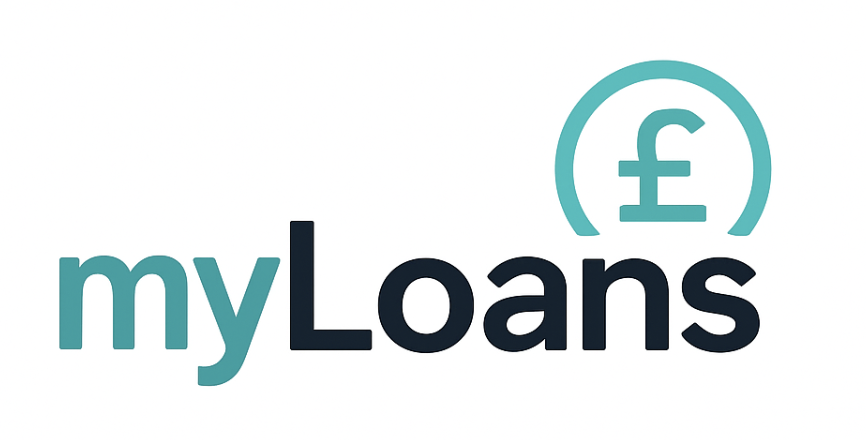Table of Contents
Introduction
When unexpected expenses strike, many people in the UK search for quick borrowing options. Two of the most common are payday loans vs short term loans UK, but while they sound similar, they work in very different ways. Both can provide fast access to cash online. However, the repayment terms, costs, and risks vary significantly.
Understanding these differences matters. As a result, you can make safer borrowing decisions and avoid unnecessary debt. In this guide, we’ll explain how payday loans and short term loans work, how they are regulated by the Financial Conduct Authority (FCA), and what other options you should consider before applying.
What Is a Payday Loan?
A payday loan is a small, high-cost loan designed to cover expenses until your next payday. Traditionally, these loans had:
-
Loan amounts: Usually £100 – £1,000
-
Repayment term: Due in full on your next payday (typically 30 days)
-
Interest rates: Very high APRs, often over 1,000% before FCA caps
Although payday loans are less common today because of stricter FCA rules, some lenders and brokers still market them under different names.
👉 Key feature: A payday loan is repaid in one lump sum. Therefore, they are often promoted to people with poor credit who may struggle to borrow elsewhere. In contrast, short term instalment loans spread repayments over several months.
What Is a Short Term Loan?
A short term loan is a type of credit repaid over several months instead of a single payday.
-
Loan amounts: Typically £200 – £5,000
-
Repayment term: 3 to 12 months (sometimes up to 24 months)
-
Interest rates: High compared to personal loans, but usually lower than payday loans
-
Repayment structure: Instalments spread monthly, which makes them easier to manage
Short term loans may be offered by direct lenders or These brokers connect borrowers with regulated lenders.
👉 Key feature: Repayable in instalments, short term loans provide more flexibility than payday loans. However, they are still classed as high-cost credit and must be considered carefully. For more detail, see MoneyHelper – Short-term credit.
Payday Loans vs Short Term Loans: Key Differences
When comparing payday loans vs short term loans UK, the most important differences come down to repayment terms, costs, and affordability checks.
| Feature | Payday Loans | Short Term Loans |
|---|---|---|
| Repayment Term | Single lump sum (next payday) | 3–12 monthly instalments |
| Loan Amounts | £100 – £1,000 | £200 – £5,000 |
| APR / Cost | Often 1,000%+ APR before FCA cap | Typically 300–1,000% APR, capped by FCA |
| Affordability Check | FCA requires it, but many legacy cases skipped | Full affordability checks required |
| Risk of Debt Spiral | Very high (one-off repayment difficult) | Lower, but still a risk if repayments missed |
| Use Case | Emergency expenses until payday | Short-term cashflow issues, larger expenses |
As you can see, payday loans tend to be smaller, riskier, and more expensive. Short term loans offer more flexibility but remain costly compared to mainstream credit. Both must follow FCA affordability rules.
How FCA Regulation Changed Payday & Short Term Loans
FCA Caps on High-Cost Credit
Since 2015, the FCA has set strict rules for high-cost short-term credit (HCSTC):
-
Daily interest cap: 0.8% per day
-
Default fee cap: £15 maximum
-
Total cost cap: You never repay more than 100% of what you borrowed
Impact on Payday vs Short Term Loans
Payday loans were hit hardest. Many lenders closed, while others rebranded as short term or instalment loan providers.
This change is key when comparing payday loans vs short term loans UK. As a result, borrowers are now better protected from excessive fees and debt spirals.
Pros and Cons of Payday Loans
When considering payday loans vs short term loans UK, it’s useful to weigh up the pros and cons.
✅ Pros
-
Fast approval, often same-day funding
-
Available to people with bad credit
-
Small loan amounts for emergencies
❌ Cons
-
Very high interest rates
-
Lump-sum repayment often triggers debt cycles
-
Not suitable for ongoing financial needs
-
Limited reputable lenders remain
📖 For more on risks, see Citizens Advice – Payday loans.
Pros and Cons of Short Term Loans
Short term loans are usually more manageable than payday loans. However, they still carry risks.
✅ Pros
-
Repayments spread over months
-
Higher loan amounts available
-
FCA regulation protects borrowers
-
Some lenders report to credit agencies (may help rebuild credit if repaid on time)
❌ Cons
-
Still expensive compared to personal loans
-
Missed payments may damage your credit file
-
Borrowers with bad credit may still face high costs
📖 Learn more at MoneyHelper – Short-term credit.
Which Is Safer: Payday or Short Term Loans?
When looking at payday loans vs short term loans UK, neither option should be considered a long-term financial solution. However, short term instalment loans are generally safer than payday loans for a few reasons:
-
Repayments are spread out → easier on cashflow
-
More lender competition → often lower effective APRs than payday loans
-
Regulatory scrutiny → FCA rules are stricter on affordability and transparency
That said, both payday loans and short term loans fall under the category of high-cost credit, so borrowers should always consider safer alternatives first.
📖 For impartial advice on safer borrowing, visit StepChange Debt Charity
Safer Alternatives to Payday and Short Term Loans
If you’re weighing up payday loans vs short term loans UK, it’s worth exploring lower-cost or more sustainable alternatives first. Safer options may include:
-
Credit unions – Often provide lower interest rates and more flexible repayment terms.
-
0% overdrafts or credit cards – If you’re eligible, these can be cheaper for small, short-term borrowing.
-
Budgeting Loans (via the DWP) – Interest-free loans available to people on certain benefits. Apply via GOV.UK.
-
Friends and family support – Can be safer if managed responsibly with clear repayment terms.
-
Debt advice charities – StepChange, Citizens Advice and MoneyHelper provide free, impartial support.
By considering these alternatives, you may be able to avoid the risks of high-cost borrowing altogether and find a solution that better suits your financial situation.
Frequently Asked Questions (FAQs)
1. Are payday loans still available in the UK?
Yes, but far fewer lenders offer them since the FCA crackdown. Many payday loan companies either closed or shifted to offering instalment-based short term loans instead.
2. Which is cheaper: payday loans or short term loans?
When comparing payday loans vs short term loans UK, short term loans are generally cheaper and easier to repay because instalments spread the cost over time. However, both are classed as high-cost credit, so alternatives may be more affordable.
3. Can I get a payday loan with bad credit?
Some lenders may approve borrowers with bad credit, but interest rates are often very high. It’s worth exploring safer alternatives such as credit unions or debt advice services before applying.
4. Are short term loans regulated?
Yes, all payday and short term loan lenders and brokers in the UK must be authorised by the Financial Conduct Authority (FCA). This ensures affordability checks, capped fees, and borrower protections are in place.
5. What happens if I can’t repay a payday loan?
If you can’t repay, the lender may add capped fees, report the missed payment to credit reference agencies, and potentially pursue collections. Always contact the lender early, or seek free advice from StepChange Debt Charity if you are struggling.
Conclusion
When it comes to payday loans vs short term loans UK, the biggest difference lies in repayment structure. Payday loans require a one-off repayment, which can trap borrowers in a cycle of debt, while short term loans spread the cost over instalments, making them somewhat more sustainable, though still expensive compared to mainstream credit.
Before choosing either, explore safer alternatives and always check that the lender or broker is authorised by the Financial Conduct Authority (FCA). If you’re uncertain, free and impartial advice is available from organisations such as MoneyHelper or StepChange.
How to Get Approved for Short Term Loans in the UK
Getting approved for a loan isn’t always straightforward, especially when it comes to short term borrowing. Many lenders require affordability checks, credit history reviews, and proof of income before making a decision. If you’re applying for a short term loan in the...
Short Term Loans Bad Credit UK: What You Need to Know
When money is tight, having a poor credit history can make borrowing feel impossible. Many people turn to short term loans for bad credit UK as a quick fix, but while these products are widely advertised, they are not always the safest choice. This guide explains how...
Alternatives to Short Term Loans in the UK | Safer Borrowing Options
Looking for alternatives to short term loans UK? While payday loans and other high-cost credit can provide fast cash, they are often expensive and risky if repayments are missed. The good news is that UK borrowers have safer and more affordable options. From credit...
Navigating Short-Term Loans in the UK: Types, Eligibility & Smart Uses
Types, Eligibility & Smart Uses Looking for clear, trustworthy information on short term loans in the UK? You’re not alone. This comprehensive guide explains the types of short term loans, eligibility criteria, FCA regulations, and the smartest ways to use (or...
Comparing Short Term Loans: Key Factors
Comparing Short Term Loans: Key FactorsIntroduction Short term loans are a common borrowing option in the UK, designed to provide fast access to cash for people dealing with unexpected bills, emergencies, or short gaps in income. With many lenders competing for...
Short Term Loans: What You Need to Know
Short Term Loans in the UK: A Complete GuideWhen you need money quickly, short term loans can seem like a solution. They are designed for borrowing small amounts over weeks or months, often from a direct lender. But with high costs and strict rules, it’s important to...
Tips for Securing Short Term Loans Easily
Tips for Securing Short Term Loans EasilyShort-term loans are financial tools designed to help individuals access quick cash for urgent needs. Unlike long-term loans, they have shorter repayment periods, usually ranging from a few...









